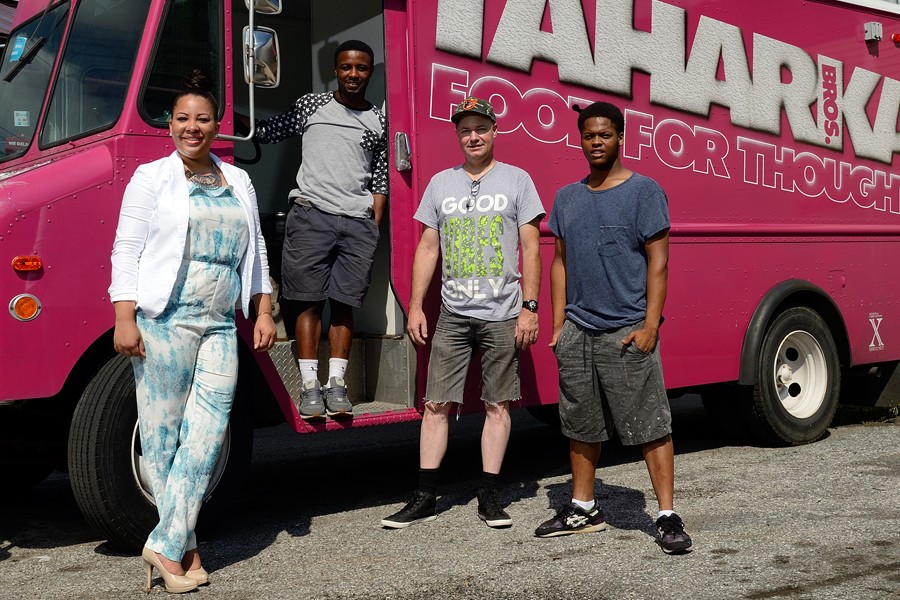Since its founding, Johns Hopkins has brought discovery to the world and possessed an international reach. Crystal Burns doesn't want to contradict the university's mission or tradition, but when it comes to purchasing, she advocates a closer-to-home approach.
That means students at Homewood are eating Taharka Brothers ice cream made 2 miles from campus, and staff might order a flower arrangement from Local Color Flowers on Brentwood Avenue.
Since May 1, Burns has served as small business and supplier diversity lead for the Johns Hopkins Purchasing Office. In the new position, Burns is lead advocate for the purchasing aspect of HopkinsLocal, an initiative launched last fall to leverage Johns Hopkins' role as the city's largest private anchor institution and create lasting economic opportunities for the city it calls home. In short, the initiative asks university and health system departments and units to "think local" when they build, hire, or buy.
HopkinsLocal's goal is to increase spending with Baltimore City businesses, especially those that are minority- and women-owned, by $6 million over the next three years by focusing on specific purchasing categories. That's where Burns comes in. She meets with staff throughout the university to herald the benefits of choosing local vendors for goods and services, and she promotes a Vendor Guide that allows users to search by category and see the names and contact information of locally owned businesses that can meet their need, whether it's catering, IT services, printers, flowers, painting, signage, advertising, or other.
"And if you can't find what you're looking for in the guide, we are ready to help and find someone for you," Burns says. The site also allows employees to give feedback on the vendor they've used so that it might guide other prospective users.
"Collectively, Johns Hopkins can have a very significant impact on the Baltimore economy, which benefits everyone," says Burns, who before joining JHU worked in Lynchburg, Virginia, as the corporate supplier diversity advocate for AREVA North America, a Paris-based global leader in nuclear and renewable energy solutions. "Doing business with local and traditionally underutilized vendors is important as it helps us better serve the communities where we live and work."
Burns' key message is to use as many local resources as possible, especially minority- and women-owned businesses, when making a purchasing decision, whether it's ordering lunch or buying new office furniture.
For every $100 Johns Hopkins spends with a Baltimore-based business, $68 stays in town, compared to $43 when dealing with a national or regional chain. A locally owned business, she says, will reinvest more money in the community as it, in turn, uses local printers, wholesalers, attorneys, accountants, and other independent businesses and entrepreneurs.
Locally owned and independent businesses also employ more people per dollar revenue they receive, creating jobs that support the health and vibrancy of the community. And buying local helps the environment, Burns says, as these businesses are more "people-sized."
"They have a smaller footprint," she says. "They carry more locally made products and are located close to their customers, which means less air pollution from all the fossil fuels needed to transport goods across the country."
Reader surveys conducted by the Consumers Union show that independent businesses typically beat their chain competitors in overall customer satisfaction, and often save the buyer money.
"There's a misconception that local businesses are pricier than their chain competitors," she says, "but they tend to be a better value, and are often willing to work with you in terms of pricing. That's part of the message we want to get out."
For additional information about suppliers listed in the Vendor Guide, or to suggest additional resources, email <buylocal@jhu> or contact the Johns Hopkins Purchasing Office at 443-997-1000.
Posted in News+Info, Community
Tagged community, hopkinslocal








